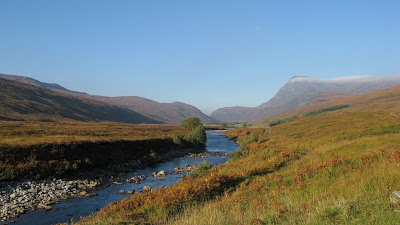Don't breathe too deeply, and other stories
Climate change is here: Climate change is already contributing to the deaths of nearly 400,000 people a year and costing the world more than $1.2 trillion, wiping 1.6% annually from global GDP, according to a new study. The impacts are being felt most keenly in developing countries, according to the research, where damage to agricultural production from extreme weather linked to climate change is contributing to deaths from malnutrition, poverty and their associated diseases. Air pollution caused by the use of fossil fuels is also separately contributing to the deaths of at least 4.5m people a year, the report found. That means failing to tackle a fossil fuel based economy will contribute to something like 100 million deaths by the end of next decade.
Warming oceans: warming and acidification will cut the productivity of fisheries in many countries. "About 1 billion people depend on seafood as their main source of protein. But some of those countries most dependent on fishing are expected to lose up to 40% of their fish catch by the middle of the century." Hardest hit will be the Persian Gulf, Libya, and Pakistan. Of course, this is just from carbon-related changes and does not take into account patterns of overfishing, invasive species, pollution, eutrophification, stratification, shifting currents or habitat loss from coral reef degradation. And even the size of fish will shrink in warmer oceans.
Dying trees: Who will speak for the trees? Trees are dying by the millions all around the world due to a wide range of factors. Not just deforestation - which, though it has slowed down a little in Brazil, still continues with increasing rapidity elsewhere - but also due to ground level ozone pollution, infectious diseases (a third of all UK trees face wipeout from a new fungal threat that is expected to wipe out over 90% of Danish Ash trees) and a variety of threats associated with climate change, such as heat stress, invasive species (pine bark beetle) and droughts. For instance, last year's drought in Texas killed over three hundred million trees (or about 6% of all its trees). Heat stress has been linked to widespread tree mortality in scores of studies over the last few years.
Ocean acidification: A basic primer with FAQs, including excellent brief answer to common misconceptions.
Killer cats: How much do cats actually kill? The Oatmeal summarises some recent research. There are hundreds of millions of domestic cats around the world, and tens or hundreds of millions of feral cats. They are taking a big toll on small wildlife.
Australian coal: Australia's carbon price, far from signalling the "death of the coal industry" as claimed repeatedly by the Opposition, has apparently done little to dent the explosive growth of coal exploration in the country. Australia is the world's largest exporter of coal, fifth largest extractor of fossil hydrocarbons globally and has the highest per capita domestic carbon emissions in the OECD. Despite setting very modest carbon reduction targets in recent legislation, both government and industry are planning on a doubling of coal exports in the coming decade, representing emissions many times greater than Australia's tiny domestic reductions, which will largely come from international offsets in any case.








